Planetary Science
-
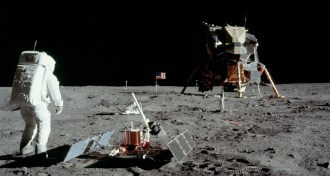 Planetary Science
Planetary ScienceBefore moon landings, scientists thought dust or crust might disrupt touchdown
Moon dust didn’t swallow spacecraft as was suggested in the 1960s. Successful exploration since that has changed our view of the moon.
-
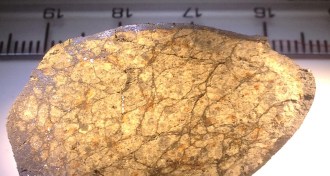 Planetary Science
Planetary ScienceThe moon is about as old as we thought it was
Meteorite heat signatures pinpoint the age of the collision that created the moon — confirming many previous lunar age estimates.
-
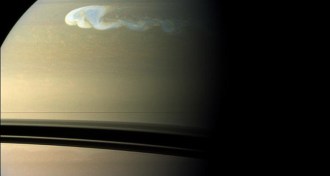 Planetary Science
Planetary ScienceAtmospheric water may be giving Saturn its spots
Planetary scientists think that water in Saturn’s atmosphere could be driving the massive storms that appear every few decades in the ringed planet’s atmosphere.
-
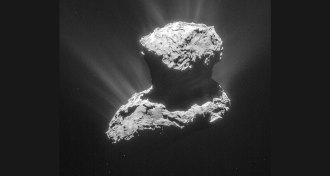 Planetary Science
Planetary ScienceComet 67P shows no sign of magnetism
Philae found no evidence of a magnetic field on comet 67P/Churyumov-Gerasimenko, but did send back some clues about its rough landing.
-
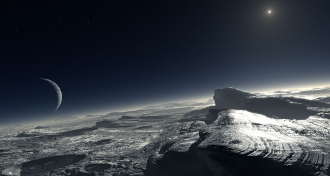 Planetary Science
Planetary ScienceA modest Plutonian proposal
Flagstaff, Echidna, Spock. Naming conventions for the landscapes of Pluto and its moons are proposed ahead of the arrival of the New Horizons probe.
-
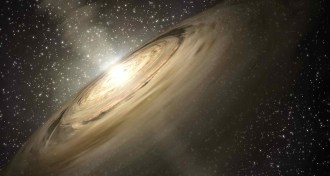 Astronomy
AstronomyCyanides around young star signal complex organic chemistry
Abundances of cyanide compounds around a young star match those found in comets in our solar system.
-
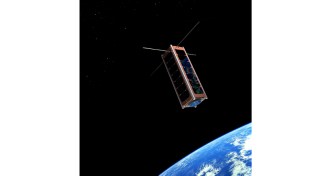 Planetary Science
Planetary ScienceMinisatellites could detect dangerous asteroids, researchers propose
Five tiny telescopes orbiting the sun could provide early warning for an Earth-bound asteroid, though other researchers disagree.
-
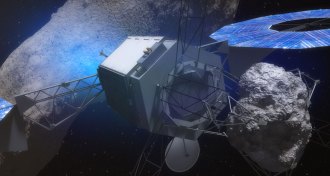 Planetary Science
Planetary ScienceNASA has a plan for putting rock from asteroid in moon’s orbit
NASA selects concept for its Asteroid Redirect Mission, which will let astronauts train for future missions to Mars.
-
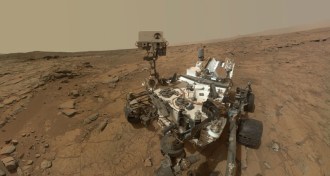 Planetary Science
Planetary SciencePotentially life-friendly nitrogen compounds found on Mars
“Fixed” nitrogen has been found in Mars deposits, raising the possibility that ancient life could have used it to build biomolecules.
-
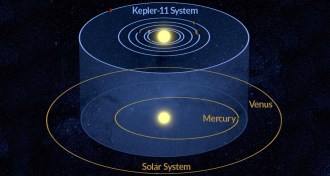 Planetary Science
Planetary ScienceEarth, neighbors weren’t the first rocky planets in the solar system
Jupiter might have swept an earlier generation of rocky planets into the sun, leaving room for Earth and its neighbors to form.
-
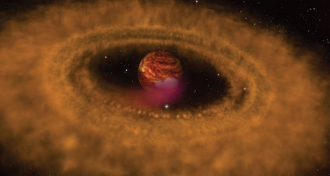 Astronomy
AstronomySolo planets may be surprisingly common
Rogue planets may form as stars do, but on a smaller scale, or they may go forced out of orbit during planetary ping-pong. Researchers are scanning the skies for them.
-
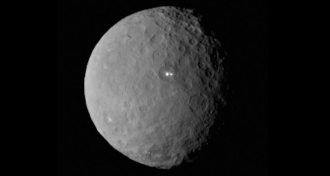 Planetary Science
Planetary ScienceBright patches on Ceres are plumes of water, maybe
Bright patches on Ceres could be plumes of water venting into space.